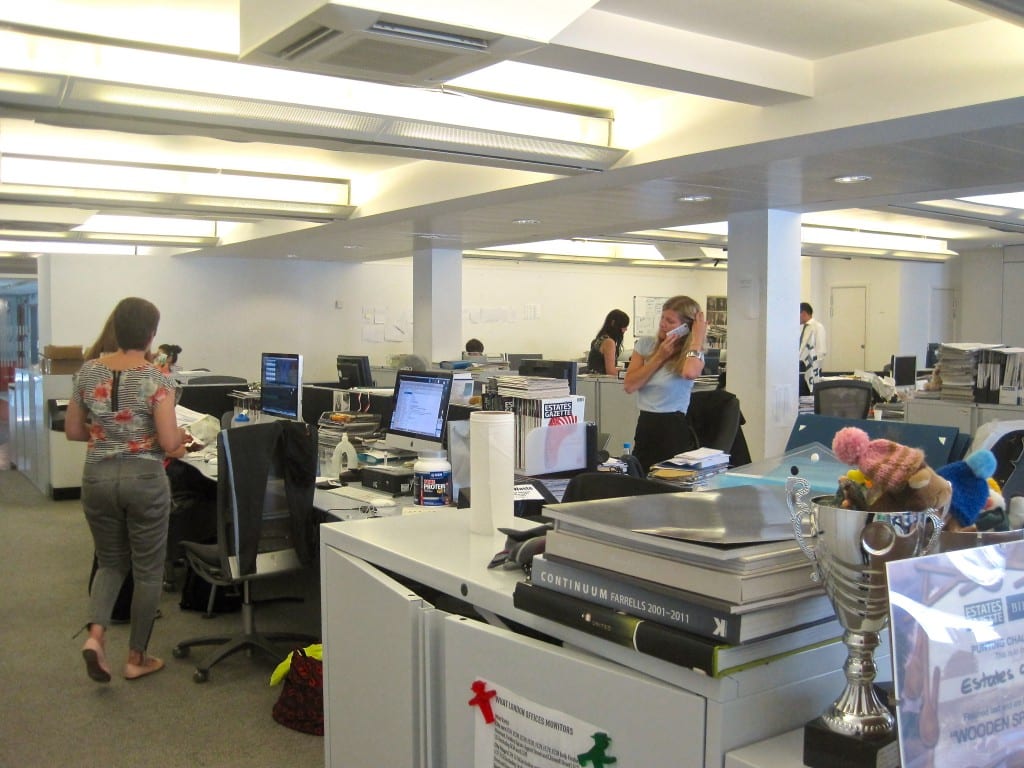What are you getting out of your work experience?
By UCL Careers, on 21 October 2015
Recently there was an interesting article in the Independent about “Work experience for students – are placements really all they’re cracked-up to be?” The article, although a little pessimistic, provides a good insight into the fact that not all work experience is equal in terms of the benefits provided for students. It all depends on factors such as duration of experience, type of organisation and whether it is a structured experience.
 EG Focus/Flickr.com/CreativeCommons
EG Focus/Flickr.com/CreativeCommons
Undertaking any form of work experience – internships, placements and insight sessions – will be beneficial – the key is knowing what the benefits are.
For example, if you were to embark upon a short bout of work experience – one or two weeks – you are unlikely to gain much in terms of skills development. However, you will learn a little bit about the industry the company is in and what it is like to work for that company (e.g. is it a small, tightly knit team where everyone mucks in, or is it a large company with formal organisational structures where you have a well-defined role). From this experience you can start to understand more about your own preferences around working culture and environment. You will also be starting to develop a personal network of contacts who may be useful for your future career aspirations.
You might also gain similar benefits from events and insight sessions run by companies to enable students to gain knowledge about a particular industry and the roles available in it. Law, media, finance and management consultancy firms run these type of sessions to introduce students to the sector, what roles are available and what skills would be needed to succeed.
With a longer internship of around six to twelve weeks you will be testing out an area of work or industry that you are interested in. You will increase your understanding about the company and how it fits into the sector. For example, you’ll gain insight into what differentiates it from other companies and how this influences how the company operates within the market. The work you do within the internship will enable you to demonstrate to future employers which skills you used outside of your studies. You may improve your technical skills within your internship and it is likely that you will begin to develop and demonstrate your “softer skills” such as how you operate within a team, how you manage a project, how flexible and committed you are, and how you communicate with your colleagues. If the work is demanding, you will gain insight into what skills you need to improve. Even if the work is not as challenging as you would like, by reflecting on the experience you will become more self-aware and begin to understand what you most enjoy and what you do not want to do. You will start to form a realistic impression of what type of role and environment might suit you.
If you secure a place on a structured summer internship scheme such as those run by large finance, consultancy and technical firms, the work will be of a similar nature to a graduate role and there is likely to be a training component to your internship. Undertaking an internship on a summer scheme in these sectors can sometimes lead to candidates being offered a place on a graduate scheme once they have graduated.
For internships in small or medium sized companies, or schemes where you rotate, you may gain experience within more than one area of the company and gain a more meaningful understanding of how different areas of the company slot together.
For year long internships or placements, you will gain a much deeper insight into the industry you are working in and heightened self-awareness. For a placement that forms part of your course, you will have the opportunity to integrate academic theory into practice. You will become more expert at any technical skills you use and continue to develop your “soft” skills. You may, by now, have worked out for sure whether you want to continue in that role/industry or you may have decided to use the transferable skills you have gained in other sectors.
For any opportunity where you have had to undertake tasks or projects, you will increase your confidence and you will be better able to demonstrate your abilities to future employers.
Where you have had to go through a recruitment process (e.g. application, interview, assessment centre) you will have gained valuable experience in how to navigate the process and if you have asked for feedback along the way, you will be able to use that to help you improve next time you apply for a role.
You will (hopefully!) have also been able to earn whilst you have been strengthening your knowledge, skills and confidence. By law companies must pay the National Minimum Wage for an intern unless they are exempt (for example if they are a registered charity). There is an exemption of payment if the experience is a placement as part of an academic course. Be informed – see information on the National Minimum Wage.
For more information on the benefits of the different types of work experience and how to make the most of the opportunities see the information about internships and work experience at Target Jobs, Prospects and the resources at Careers Tagged – work experience.
– Rochelle Symons, Placements and Vacancies Manager, UCL Careers.
 Close
Close


